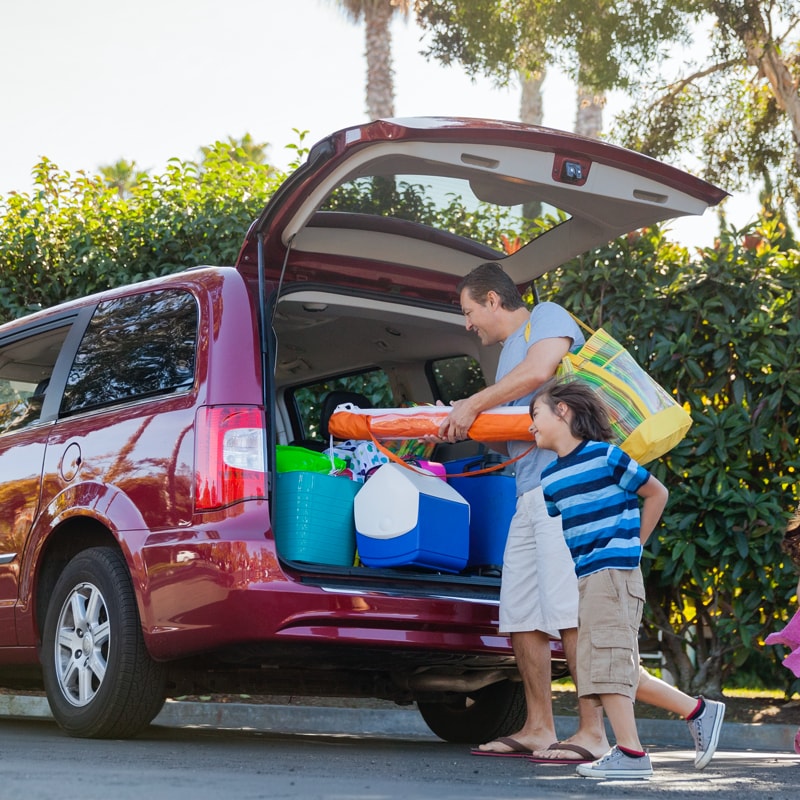CHOOSING YOUR TIRES
Road Trip Essential Prep
 What should you check on your vehicle before a road trip
What should you check on your vehicle before a road trip
- Driver's Documentation. Always be sure to bring your driver's license, registration, car insurance policy documents and the vehicle's owner's manual.
- Proper Tire Inflation. Smooth, even driving starts with your tires. Check your tire air pressure before your trip and at least once a month. NOTE: Tires should be inflated, when cool, to the vehicle manufacturer's recommendations printed on the vehicle door placard or in your vehicle's owner's manual, NOT the maximum limit stamped on a tire sidewall.1 Learn why proper tire pressure is important in our Tire Air Pressure article.
- Spare Tire. Make sure that your spare tire has been properly inflated to the owner’s manual specifications. For more information about a vehicle’s spare tire, please read our spare tire guide
- Air Filter. Replacing a clogged air filter can improve gas mileage, which translates to real savings at the pump.
- Spark Plugs. Worn or dirty spark plugs can cause misfiring, which wastes fuel -replacing these per your vehicle's owner's manual can lead to a better performing vehicle.
- Gas Cap. Damaged, loose, or missing gas caps waste gas.
- Water and Antifreeze. Keep an extra bottle of new antifreeze/coolant and a gallon of water in your truck.
- First Aid Kit. Carry additional medical supplies handy such as adhesive tape, band-aids, bandages or gauzes, antiseptic wipes and even a list of emergency phone numbers.
- Vehicle Emergency Kit. Different than the First Aid Kit, a vehicle emergency kit may contain a flashlight with extra batteries, a tire pressure gauge, battery jumper cables, light sticks, a reflective emergency vest, rain ponchos, and even an umbrella in case of inclement weather.
1 "Be Tire Smart," Rubber Manufacturer's Association